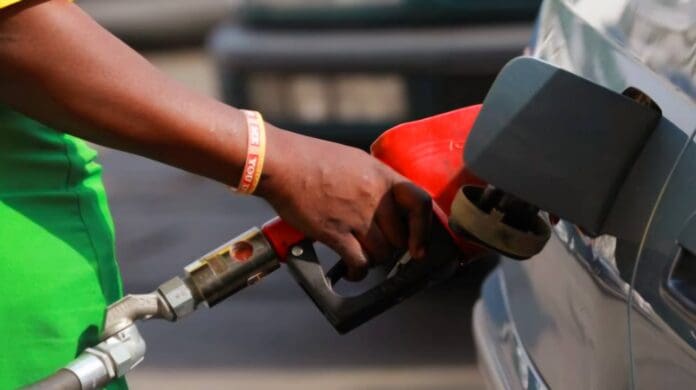Johannesburg – South African motorists are bracing for yet another fuel price adjustment in March 2025.
While mid-month data suggests a smaller petrol price hike than initially anticipated, economic and geopolitical factors remain highly volatile.
The latest projections from the Central Energy Fund (CEF) indicate moderate increases for petrol users, with mixed results for diesel motorists.
Projected fuel price adjustments for March 2025
The mid-month report from the CEF, effective as of 14 February 2025, indicates the following projected fuel price changes:
| Fuel Type | Expected Price Change (per litre) |
| Petrol 93 | Increase of 23 cents |
| Petrol 95 | Increase of 10 cents |
| Diesel 0.05% | Increase of 4 cents |
| Diesel 0.005% | Decrease of 3 cents |
| Illuminating Paraffin | Increase of 16 cents |
While these increases appear relatively small compared to previous months, the actual price adjustment at the start of March will depend on market fluctuations, particularly the rand/dollar exchange rate and global oil prices.
Key factors driving the petrol price in South Africa
Petrol prices in South Africa are adjusted monthly. Several local and international factors are influencing the projected fuel price increases:
1. Rand/dollar exchange rate
South Africa imports a significant portion of its crude oil, which is priced in US dollars. A weaker rand makes oil imports more expensive, contributing to higher fuel costs.
The rand has been under pressure due to economic uncertainty and global financial market movements, which have increased the cost of fuel.
2. Global crude oil price volatility
Crude oil prices have remained high due to ongoing geopolitical tensions, particularly in the Middle East. Conflicts in key oil-producing regions have disrupted supply chains, pushing up the price of crude oil. If these tensions continue, fuel prices may increase further.
As the Minister of Mineral and Petroleum Resources, Gwede Mantashe, indicated in a statement in February, international factors contributing to the increase include; “the fact that South Africa imports both crude oil and finished products at a price set at the international level, including shipping costs.”
Per February 2025 data from the department, the average Brent Crude Oil price increased from 72.78 US Dollars (USD) to 77.41 USD, during the period under review.
3. Local taxation and levies
A significant portion of South Africa’s fuel price is made up of taxes, including fixed taxes like the General Fuel Levy (R3.96/litre as of 2024) and the Road Accident Fund Levy (R2.18/litre), which compound price hikes.
Market speculation
Traders often react to geopolitical tensions or economic data, causing short-term oil price swings. For instance, rumors of escalating conflicts in the Middle East conflicts can trigger immediate price spikes.
A recent example is the ongoing sanctions against Russia and Iran, compounded by Donald Trump’s late 2024 threat to imposed higher tariffs on BRICS-affiliated countries. These factors further constrain supply, driving up freight rates, and adding pressure to global oil markets.
How South Africans can mitigate the impact of rising fuel prices
With fuel prices expected to remain high and unpredictable, South Africans can take proactive steps to reduce the financial impact:
1. Carpooling and ride-sharing
Sharing rides with colleagues or using services like Bolt and Uber can help reduce individual fuel expenses. Carpooling also lessens traffic congestion and environmental impact.
2. Using public transport more frequently
For those with access to reliable public transport, making the switch for daily commutes can significantly cut fuel expenses. Options such as the Gautrain, minibus taxis, and buses offer cost-effective alternatives.
3. Driving efficiently
Small adjustments in driving habits can save fuel:
- Maintain steady speeds and avoid aggressive acceleration.
- Keep tires properly inflated to reduce fuel consumption.
- Reduce unnecessary idling and limit air conditioning use.
4. Opting for fuel-efficient vehicles
If considering a new car purchase, choosing a fuel-efficient or hybrid vehicle can lead to long-term savings. Electric vehicles (EVs) are also gaining traction as a viable alternative.
5. Monitoring fuel reward programs
Many petrol stations offer loyalty programs that provide discounts or cashback on fuel purchases. Signing up for these can help motorists save over time.
6. Budgeting for fuel costs
With fuel price volatility, planning a monthly fuel budget can help households adjust their spending accordingly. Using apps to track fuel expenses can also be beneficial.
7. Working remotely or hybrid work
For those with flexible work arrangements, reducing the number of days spent commuting can significantly cut fuel costs. Companies that support remote work can help employees mitigate rising transport expenses.
While the March 2025 fuel price projections bring a glimmer of hope for diesel users, the broader public faces a different reality.
The anticipated petrol hike, combined with the recently announced 12.7% increase in electricity tariffs, is expected to create a ripple effect. As small businesses and consumers adjust their spending habits, the strain on household budgets could contribute to further economic instability.

